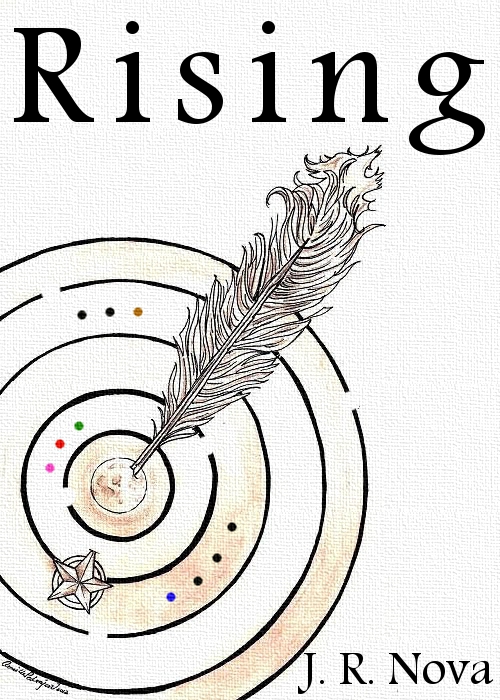I don't believe that
human beings have control over their destinies.
Between free will and determinism, I lean toward determinism. We're
products of our environment. We like what we like and enjoy what we
enjoy and dream what we dream and do what we do largely because of
what we've experienced in the past.
Yet in a world of free will
“versus” determinism, I cop out. I believe both play a roll at
once. When looking at past and present, it seems impossible to
believe in free will, as determinism in the form of human behavior
and natural genetics plays such a heavy-handed role in how we behave.
But there is a third item to look at.
In the moment is
where free will reigns. When I mean “the moment,” I don't mean
every moment, but only in those moments that we are fully aware of
what we're doing and so are able to make conscious decisions. In this
way we can out-dual even our habits. At the ice cream shop we may go
in unaware of what we're doing and choose vanilla out
of habit (determinism), or we may show patience and see
the numerous flavors, and in our awareness, discard our past experiences
to choose something not out of habit, but against it.
And so in the moment, with free will, there is no destiny. No one can predict what a conscious being will choose to do, or how he or she will react. We may all be destined for something, greatness or otherwise, but many of us can, with practice, live a life outside of that destiny, even as it unfolds around us.
For some this is a harrowing
task, and with so many possibilities, some are unable to choose at
all. I am one of those types (I often fall back on habit because choices given to me in life are too daunting, complicated, or confusing). And yet within the moment, out of
awareness, free will still reigns. Not directly tied to past or
future, choices are made for other reasons than habit and
behavior. Choices are made out of awareness.
This post isn't about
choosing ice cream flavors, it's about choosing something much more
important. In life we face challenges each and every day, and
these challenges are toxic, violent, uncomfortable, etc. If we are
not aware, we will depend on our past experiences to react to what is
happening to us right now. If we were brought up with violence, we
may act with violence. If we were brought up with compassion, we may
act with compassion. These are generalities, of course. All people
are different, and the makeup of one's brain certainly supersedes
environment. But it's determinism in the end, and this may lead (even for, or especially for, the compassionate) to a life of frustration, having things happen to us and not understanding why, or why we react the way we do.
But with awareness there is
another option. Not to behave as we've always behaved, but to behave
in a new way, a way that better suits the situation at hand. To step out of the norm of human behavior and face challenges with a new set of tools, active and purposeful, instead of our former passive habits.
And so I have decided (at
least for today) that I have only one real choice in life. I am in
control over only one thing. I control how I react—but only if I am
consciously aware of the moment.
I must choose anger or
acceptance. I must choose fear or joy.
There's not a whole lot else
I, as a human being, control. I cannot control what others do or
feel. I cannot control the society or culture I am born and raised
in. I cannot tell someone “build me an ice cream shop with many
flavors” or get ice cream for free (making me a slave in so many
ways to so many different things).
But I do control my
reaction to the eventful situations life throws my way. This may not
be a big deal to others, or for some they may have realized this fact
many years ago, but up until this realization I had always struggled
to understand a world in which both free will and determinism were
possible. How could I fit them together? I have now done that, and
it's a breakthrough in many ways.
Past...future...present.
One (determinism) controls two of these, and the other (free will)
just the one, but all are important in understanding why people do
what they do; understanding why I do what I do.
I don't believe in
destiny. I do believe in right here and right now. “Destiny”
is just another moment in time to me.










